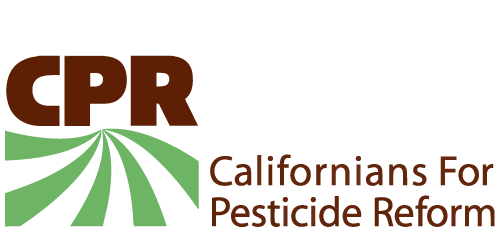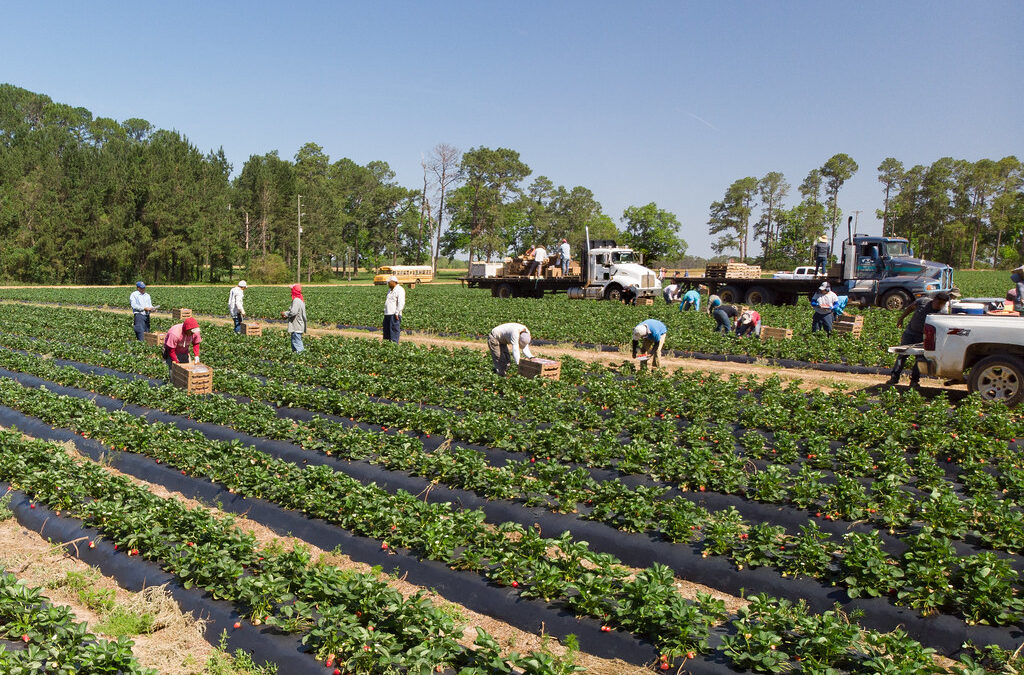Governor Newsom signs AB 652 into law, establishing an EJ Advisory Committee at DPR
SACRAMENTO: Farmworkers and other underrepresented groups impacted by hazardous pesticide exposure will now have a seat at the table where pesticide policy in California is decided, thanks to a new law signed today by Governor Gavin Newsom. Assembly Bill 652, authored by Assemblymember Alex Lee and co-sponsored by Californians for Pesticide Reform, Pesticide Action Network and Safe Ag Safe Schools, establishes an environmental justice advisory committee at the California Department of Pesticide Regulation.
The committee will be composed of up to eleven members, including representatives of rural and urban communities with the most significant levels of exposure to pesticides. Individuals representing farmworkers, Indigenous peoples, socially disadvantaged farmers and ranchers, and an agroecologist or biologist with an environmental justice background will be selected to serve.
The establishment of the committee, which will be tasked with making recommendations to the Department of Pesticide Regulation on how to better incorporate environmental justice into the department’s decision-making, received a warm welcome from advocates.
“For too long, the experience of farmworker families and communities affected by pesticide exposure has been disregarded,” said Angel Garcia, co-director of the statewide coalition Californians for Pesticide Reform. “The only way to address the ongoing health disparity linked to pesticides, which overwhelmingly impact Latino residents of farmworking communities, is to lift up the voices of people living in regions where highly hazardous pesticides are used in large quantities.”
Roughly 200 million pounds of pesticides are used each year in California, with the heaviest concentrations in the state’s agricultural regions: the San Joaquin Valley, Central Coast and Imperial Valley. Pesticide exposure has been linked to a wide range of health harms, including cancer, asthma, autism, ADHD, birth defects, and Parkinson’s.
Because use is concentrated in predominantly Mexican-Indigenous farmworker communities, there is a significant racial disparity in pesticide health impacts. Researchers using California Environmental Protection Agency data found that pesticide use was one of the top two pollutants in California with the greatest racial and ethnic disparity in terms of their health impacts.
“The data show that pesticides disproportionately impact residents of color in California,” said Asha Sharma, California organizing co-director at Pesticide Action Network. “The establishment of an environmental justice advisory committee at the Department of Pesticide Regulation is a critical first step in addressing those disparities.”
The Department of Pesticide Regulation previously lacked any structural accountability to those most impacted by its policies. Regular public meetings that include meaningful engagement with environmental justice communities, consistent language accessibility, and in-person meetings in high pesticide use communities helps to address this shortcoming.
Safe Ag Safe Schools organizer Yanely Martinez noted, “This is a very important bill that will give a voice to the communities that are most affected, such as my own hometown of Greenfield in the Heart of the Salinas Valley, also known as ‘The Salad Bowl of the World’. AB 652 is a bill for the people, by the people.”
For more than a decade, Safe Ag Safe Schools, based in the Monterey Bay area, has been at the forefront of efforts to make the Department more transparent and more directly accountable to impacted Californians. The environmental justice advisory committee established by AB 652 is a step in that direction.

